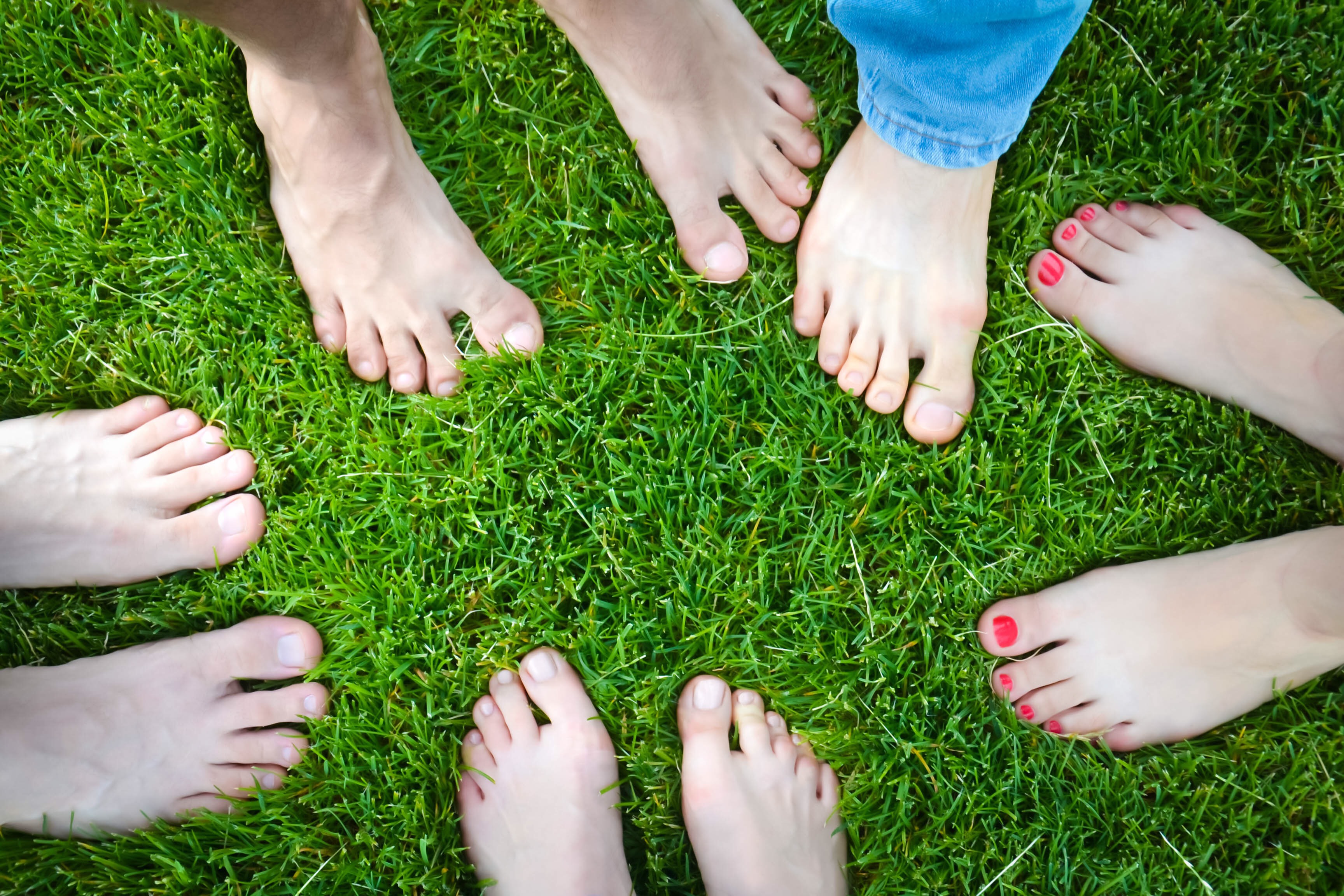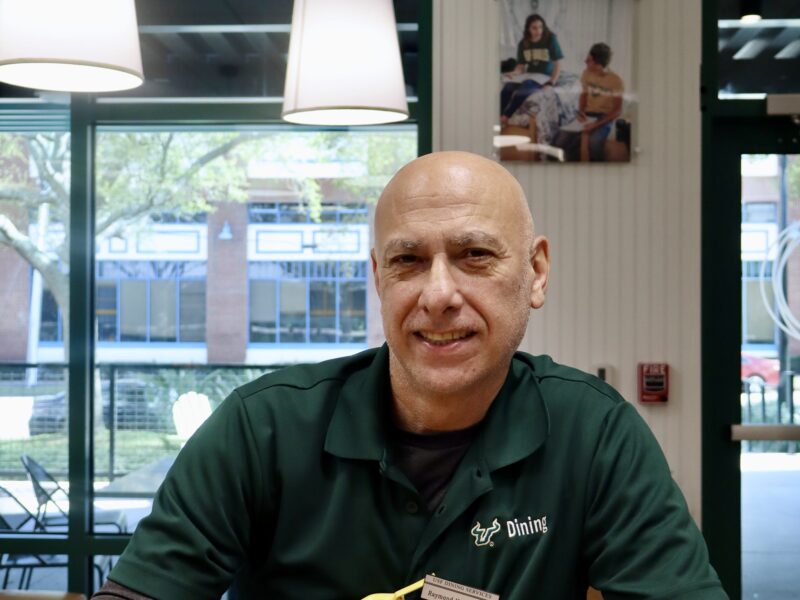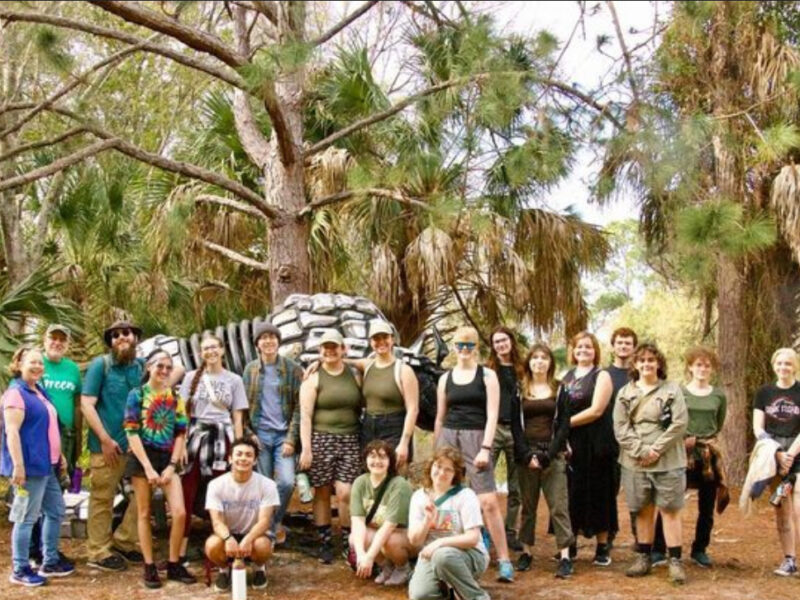By Brianna Rodriguez
From fancy footwear to foot fetishes to the dislike of toes — feet do not go unnoticed.
After receiving over 20 comments on a Facebook post asking students how they feel about being barefoot on campus, it was obvious that shoeless students gets the campus talking.
Some students have strong opinions, while others, like student body president David Thompson, don’t understand the hype.
“I genuinely can’t understand why some students care so much that others aren’t wearing shoes,” said Thompson in the Facebook post.
Student body president-elect Kaeden Kelso said he prefers shoes, but “what a student does with their feet is completely up to them.
There are many reasons why students decided to lose the shoes.
The main reason? Some feel more comfortable barefoot.
Maybe something is appealing about the feel of grass between their toes. Maybe freeing their feet from the constriction of a shoe puts them at ease.
“I am uncomfortable wearing closed-toed shoes all day. It drives me nuts. I’ll at least wear flip flops and take them off in classes, the tutoring room, the library, etc” commented Hannah Desha, a junior environmental science and policy major.
Others may be participants of earthing, which was was driven by a governmental study called Earthing: Health Implications of Reconnecting the Human Body to the Earth’s Surface Electrons that focused on reconnecting the body with the electrons on the earth’s surface.
“We are all just batteries and to connect to our mother earth, we must charge,” said Shawn McCort, a senior theater major and avid promoter of earthing.
On the other side of the argument, people consider a lack of shoes unsanitary and hazardous.
Henry Burrows, a sophomore education major, spoke out against barefooted students and his dislike toward students without shoes purchasing food in The Reef.
“There are so many disgusting things on the ground. We wear shoes for a reason – to protect our feet from filth, feces, bacteria, pathogens, parasites and more that can be found on the ground,” said Burrows.
“That’s not to even mention the dangerous things that could leave a cut on your foot, through which infections may occur. It frustrates me when these people bring all these contaminants into The Reef near the food that we all have to ingest.”
Responding to Burrows’ comment, Resa Bell, a junior anthropology and criminology major, said,“We kiss loved ones with our mouth, and our mouths literally have more germs than a dogs’, so (I don’t know) why people get paranoid about germs from the ground.”
While students may be for or against the situation, the student code of conduct does not include a dress code. Therefore, shoes are not required on campus.
In the end, going barefoot is a personal preference and is allowed on campus.
However, Ryan Gammill, a junior business management major offers a critical question, “Would you rather step in dog poo with a foot or a shoe? This is my question. My question for you.”
Header photo courtesy of Marco Verch




Excellent article. I got my start as a full-time barefooter while attending Eckerd College in St Petersburg, Florida. I’m still at it many years later.
I just can’t get over the absurdity of statements like the one Henry Burrows made. “…It frustrates me when these people bring all these contaminants into The Reef near the food that we all have to ingest.”
So then, disregarding the relevance of the argument to begin with, am I to understand the soles of shoes, that tread in the same filth mentioned by Burrows, and are never washed, are somehow cleaner than the soles of bare feet that are washed or a regular basis???
Mr. Burrows’ argument is one solely (tee-hee) of emotion. It defies logic and is the basis for the stigma against bare feet in general.
I would have much more respect for folks who just admit they don’t like it.
I’m always amazed that people think there is feces scattered about. They never think that the same things are on the bottom of their shoes when they walk through the cafeteria. Studies show that Footwear Harbors some pretty nasty stuff but bare feet are cleaner than most people realize.
Henry Burrows, could you please explain to me what kind of discussing things, that bare feet can track into the reef, that can not be tracked in by your shoes that have treads on them?
“Henry Burrows, a sophomore education major, spoke out against barefooted students and his dislike toward students without shoes purchasing food in The Reef.
“There are so many disgusting things on the ground. We wear shoes for a reason – to protect our feet from filth, feces, bacteria, pathogens, parasites and more that can be found on the ground,” said Burrows.
“That’s not to even mention the dangerous things that could leave a cut on your foot, through which infections may occur. It frustrates me when these people bring all these contaminants into The Reef near the food that we all have to ingest.”
Henry is a sophomore education major, and obviously from his statement completely ignorant as far as microbiology is concerned.
I’m more dismayed at the publication’s decision to include his misguided comment than I am with his off the cuff irrelevant remarks. Sadly some folks will read his opinion and actually believe it.
I would rather step in dog muck in bare feet than shoes, because the alternative to the very occasional and harmless stepping in it and wiping it/ washing it off is wearing shoes all the time which is damaging to my feet, to my movement, my joints, results in athletes foot and disconnects from the joyous contact with the earth. Need I go on?
I feel bad for Mr. Burrows, who clearly didn’t think this through before he spoke. Cultural conditioning to see shoe-wearing as mandatory has resulted in this sort of irrational thinking in some people, as well as myths about bare feet in and of themselves being unclean. The reason that people’s feet sometimes smell bad is due to being enclosed inside a warm, moist environment perfect for the growth of bacteria and fungus – in other words, the culprit is shoes, not feet. Most shoes also deform the feet and prevent them from functioning as intended. The benefits of living barefoot as much as possible are numerous, and profound to those who practice it. Shoes should be seen as tools, similar to gloves: needed for certain tasks, but unhealthy to be worn all the time. Dispelling the myths about bare feet is an ongoing education issue, and this article helps with that. Thank you.